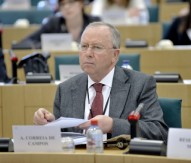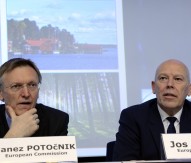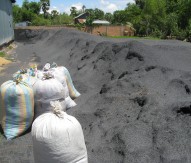
Changing the climate through collaboration
António Correia de Campos MEP is the chair of the Science and Technology Assessment unit (STOA), an official organ of the European Parliament. STOA assesses scientific and technological policy options for the Parliament and has access to external, independent experts drawn from research institutes, universities, laboratories and consultancies; they provide their opinions and assessments regarding future EU scientific and technological policy.
Speaking at the League of European Research Universities’ autumn reception entitled ‘ERA at the Horizon of 2020?,’ and attended by Horizon 2020 Projects, the Portuguese MEP set out his thoughts regarding climate action policy making.
“This is a tricky area where many problems still exist…it’s also naturally an area where science has been largely neglected, or as it has shown, concentrated in specific areas. The challenge we have in front of us is very strong because we are asking science to do what politicians have not done until now. We are asking science to start or to be important in the process of change and we are asking for more sustainable model; it’s an enormous challenge that scientists have in front of them.”
“The information is very difficult to collect. There is an enormous range of estimations – damage from climate change is estimated to be between one and 20% of global GDP. The costs of mitigating climate changes are estimated to be between zero and 3% of GDP, so we have a lot of information. Yet I’m sure that we are not just asking scientists to bring us information. Information is the job of managers. Of course, when there is no routine information, we need to take information from research, as we have done before.”
Campos outlined that multidisciplinarity regarding climate change policy seemed “so obvious,” yet at the same time drew attention to the reality, where it still had to be accomplished and then called for normative action to “encourage multidisciplinarity”. The MEP continued by summarising the important effect political science was now having on climate policy making, suggesting that, despite a shift in the body of scientists agreeing to climate change, tackling the trade-offs was more “difficult to tackle”.
“The United States is going to become self-sufficient in energy, they aim to have lots of gas from shale frustration, and Europe, or parts of Europe, are likely to follow. The price of energy in the USA will come down and we need to be more exigent in terms of our efforts [in tackling climate change]. We have probably a more difficult job in front of us.
“We are almost isolated in this area. We have a friendly president in the US who is more confident about climate changes and its programmes, but still this can change and can become more difficult in the future. We need trust and engagement. We need the triangle between society, science and policy making to be really together, for this triangle to be interconnected.”
The MEP concluded by stating that tackling climate change was about education and changing culture, but this was a process that could easily be overturned.
“You may say ‘it’s a matter of education’, well yes it’s a matter of education, but it is…a problem of culture as well and this is very difficult. It could be reversible, as well. I have witnessed regions that started in this direction, met with economic difficulties…and went back again; it’s not a clear path.”
“A lot of education of course is needed, but there is also a terrible recent example of government taxation. We need to learn more of how to adjust incentives to policies because it was a failure.”
It seems clear from de Campos that policy co-ordination between politicians and scientists, in addition to encouraging a change of culture, is the only way to successfully deal with the effects of climate change.
António Correia de Campos MEP



